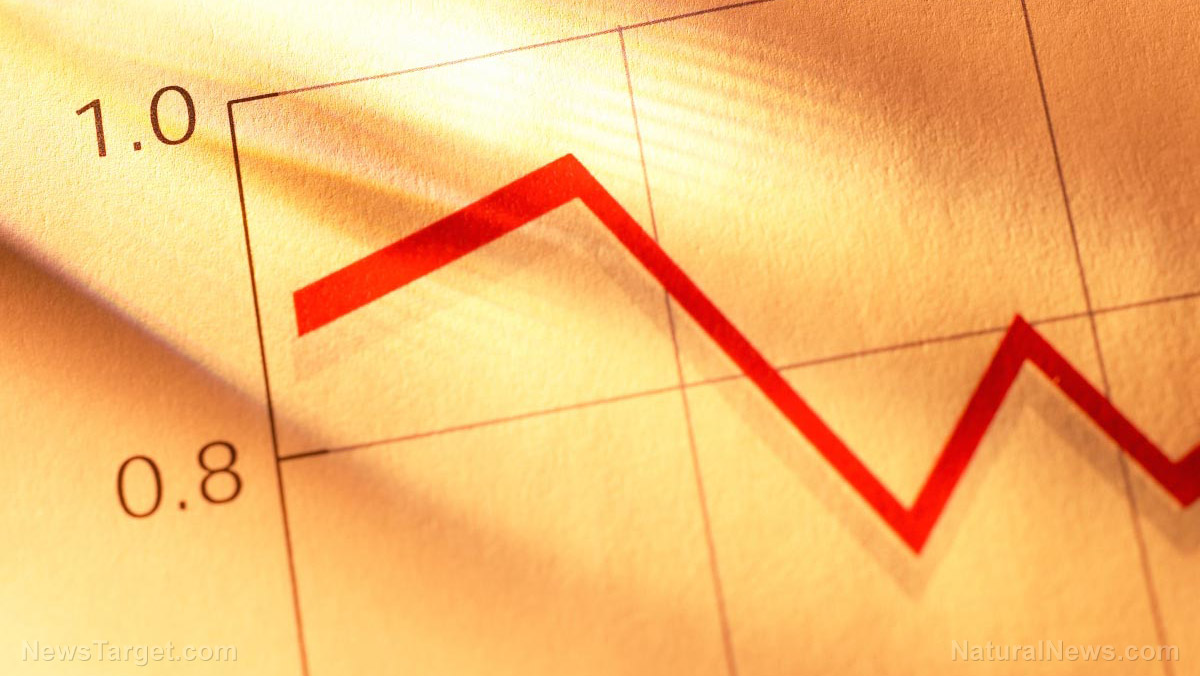Will Ukraine run out of energy soon?
11/05/2021 / By News Editors

Over the past months, Ukrainian politicians have been persistently throwing red meat to Moscow through the acts of aggression against the Nord Stream-2 pipeline, the recent escalation of the conflict in Donbass with the use of UAVs and the pressure on Ukrainian politician Medvedchuk, who is considered pro-Russian.
(Article republished from SouthFront.org)
All these actions had a shared ultimate objective and were aimed at forcing concessions from Moscow on issues of the Minsk agreements, Crimea’s status and natural gas transit, especially considering Nord Stream 2.
Some Ukrainian experts warned about the danger of this plan, because in fact, there were many risks for Ukraine, and there were almost no counterarguments in case of offensive reaction from the Kremlin.
For now, we can observe that the situation in the energy sector is following the worst-case scenario for Kiev. On November 1, Russia suspended coal exports to Ukraine that can be regarded as more than depressing news for the country in the context of the energy crisis in Europe.
According to the statistics from the Ukrainian Ministry of Energy, up to October 10, the coal stocks in warehouses of thermal power plants were estimated at 623.7 thousand tons that meet the needs for just 7-10 days of work. The demand for electricity is connected to of temperature and it will continue to grow because of the upcoming winter Electricity consumption has already increased by 2.8% to 408 million kilowatt-hours, as the Ministry of Energy stated.
At the same time, the world community is facing huge problems related to the depletion of coal reserves. Due to the global shortage of this type of fuel, the price is breaking records in the foreign markets, reaching $250 per ton. In addition to the price issue, it is extremely difficult to find out coal available for distribution in the market.
As for the imports to Ukraine, on average, 670,000 tons of Russian coal are shipped per month, while consumption at Ukrainian power plants amounts 1.8 million tons per month. Thus, Ukrainian thermal power plants will be deprived of a third of their needs in coal amid acute shortage of this resource.
The second point stands for usage of this coal at many Ukrainian power plants, such as Luhanska, Slavyanska, Kryvorizka, Darnitska, Sumska and Chernihivska. Thus, for now it’s apparent that these plants risk being completely stopped, as the overall level of generation in the country falls to critical levels.
Click to see full-size image
Ukraine also faces challenges with an acute shortage of gas. The price per 1,000 cubic meters for public institutions has already reached $1,700, and the start of the heating season remains questionable. Gas prices for households have have undergone manifold increases, and this happens against the backdrop of increased re-exports to European countries, i.e. the Ukrainian company “Naftogaz” signed a framework agreement with the Moldovan company “Energocom” on supply of 700 million cubic meters of gas. This decision from the Ukrainian side arises several arguable questions: does Ukraine have so much gas to re-sell and does the Republic of Moldova have enough money, approximately $ 1 billion, to pay for energy supplies.
Ukraine’s rhetoric about its energy independence from Russia sound less and less convincing at the time of fuel starvation in the country, while the objective reality dictates its own terms. As a result of the auction, which was held according to the Ukrainian legislative reserved procedure on October 27, 8 Ukrainian energy supply companies have fully purchased access to the interstate cross-section at the border with Russia for November 2021. This means that several companies controlled by oligarchs will organize the purchase of electricity from Russia and deliver it to Ukraine at resale prices, proving that there is no “energy sovereignty” or any other sovereignty of Ukraine.
Illustrative Image
Russian motives for not completely cutting Kiev off from energy supplies are clear. Moscow is not interested in completely disintegrating Ukraine as a state, as it could only worsen the unstable situation near its western borders. At the same time, actions of the Ukrainian side can be regarded as irrational due to the external management of the Kiev regime by Euro-Atlantic elites, and the Ukrainian authorities choose to take risks even if their country is close to be considered as a failed-state. For the European community, this means a risk of further deterioration of the already unstable political situation with such consequences as increasing refugee flows, disrupted supply chains, worsening criminality in the region, and the cost of peacekeeping process.
Read more at: SouthFront.org
Tagged Under: big government, Bubble, chaos, Collapse, crisis, energy supply, gas shortage, Inflation, market crash, national security, power, powergrid, risk, Russia, supply chain, Ukraine
RECENT NEWS & ARTICLES
COPYRIGHT © 2017 MARKET CRASH NEWS



















